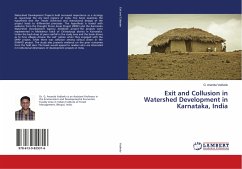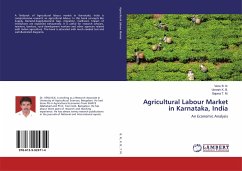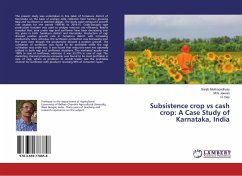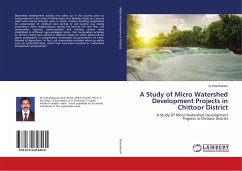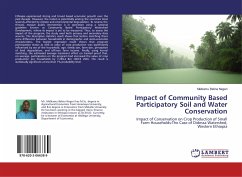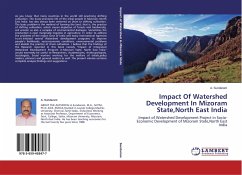Watershed Development Projects hold increased importance as a strategy to rejuvenate the dry land regions of India. The book examines the hypothesis that the 'mode' (technical and institutional design) of the project leads to differential processes. The hypothesis is tested with evidence from the Drought Prone Areas Project (DPAP) and the Karnataka Watershed Development Agency (KAWAD) project The projects were implemented in Molkalmur taluk of Chitradurga district in Karnataka. Under the back-drop of poor rainfall in the study area and the book shows as to how villages choose the 'exit' option when they engaged with the DPAP project, while there was collusion among various actors in the KAWAD project. The study also presents evidence on the poor outcomes from the field sites. The book would appeal to readers who are interested in Institutional dimensions of development projects in India.
Bitte wählen Sie Ihr Anliegen aus.
Rechnungen
Retourenschein anfordern
Bestellstatus
Storno

